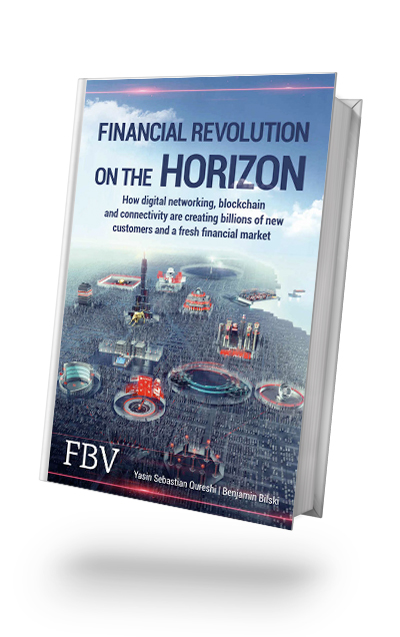
Too high costs, cumbersome processes, misguided incentives and, above all, more isolated divisional solutions. A financial system with methods and processes from the day before yesterday characterizes our banking. Yes, our entire lives and society – especially the state and public offices – are based on such archaic processes. In addition, billions of people worldwide are excluded from finance: they have no account. Overall, banks, currencies, payment methods and administrative processes are not sustainable. They do not meet the needs of many customers/citizens, nor the challenges of the time. Politically and socially, we flounder aimlessly, uncontrolled and inefficiently.
The financial professional and entrepreneur Yasin Sebastian Qureshi – at 29 the youngest person ever to run a European bank – describes the groundbreaking solutions that have long been there: Digitalisation with the Internet, mobile and blockchain are the key drivers of developments, symbolized by crypto currencies as well. However, the revolutionary thing about blockchains is not the pure payment process, but the technology behind it, more efficient processes and especially the decentralized character and networking. Together with Benjamin Bilski (Forbes „30 under 30“) Qureshi outlines the future of finance and all essential administrative processes in economy and state, even whole states, on the basis of such blockchains.
The authors also present the history, meaning and essence of money. It has always changed – but is now in a state of complete upheaval. For this reason, the two authors also shed light on the social, economic and political consequences of these changes. What happens when everything is organized in blockchains? Do not be afraid! The new foundations of our living and working together unleash forces that have so far been useless and inefficiently bound in technocratic working environments. After the industrialist, the next revolution follows. It starts in finance, will overturn everything there and spread to other areas. The blockchain gives us back time and potential – which we can use for other, better and more creative things. Cash, however, is likely to disappear in the medium term – just like banks. At least as we know it today.